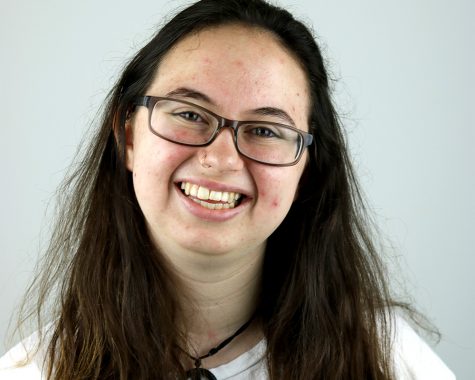New state bill aims to increase diversity in businesses
January 6, 2019
A bill in the Illinois General Assembly has created some challenges for Eastern as they try, along with the state, to increase diverse businesses.
According to the general assembly website, the bill’s short title “may be cited as the Business Enterprise for Minorities, Women, and Persons with Disabilities Act.”
In an effort to increase diversity across Illinois, this act encourages enterprises to do more business with companies owned at least 51 percent by minorities, women or disabled persons.
The act says that a goal of 20 percent of all state contracts, including transactions made by Eastern, should come from those companies.
Paul McCann, interim vice president for student affairs, said this goal has proven challenging to Eastern for many different reasons.
Currently, Eastern gets about 2 percent of its business from businesses fitting that description, putting it as the farthest from the goal of 20 percent compared to all the other Illinois public universities, many of whom are also still far from that 20 percent.
McCann said that although Eastern is trying to figure out creative ways to get that number up, there are many challenges that stand in front of that goal, a big one being Eastern’s location.
“(Eastern) is a long way from Chicago,” McCann said. “The minority population downstate is a little bit lower than it is in other places in Illinois, and so if we’re trying to entice a vendor from Chicago to come down to Charleston, then they have to be willing to pay some of the costs to get down here to deliver their product.”
McCann said that that has been somewhat of a problem, especially given Eastern’s restraints when it comes to buying products and services.
“We also have a law in the state of Illinois that says (Eastern) has to buy from the lowest responsible bidder. That creates some problems when a minority bidder doesn’t necessarily bid the lowest, or can’t bid the lowest price,” McCann said. “We’re trying to figure out ways of getting more people to bid, more people interested, more people skilled in (the) central Illinois area.”
Another problem comes from Eastern’s, and the rest of the state’s, recent financial problems, McCann said.
“With the budget impasse, and that’s behind us, but with the budget impasse, we cut down our expenditures, and about 75 percent of our expenditures are related to personnel. That means that only 25 percent can be subjected to this,” McCann said. “So the 25 percent of the 100 percent then are what BEP would like us to spend 20 percent of.”
He said what that part of the budget is used to purchase can be a roadblock to this goal as well.
“When you start looking at what we spend (that 25 percent) on, utilities, electric gas, we spend it on textbooks, we spend it on library books, and some of those classifications are very difficult to find minority vendors because they’re large purchases and large investments and many times those vendors just can’t afford to do those kinds of investments,” he said.
That is a part of this act, McCann said, that is providing advice to those minority-owned businesses.
“Part of this is helping some of those minority vendors grow and understand what they have to do to be a business partner, some is identifying which products they have that we might use,” he said.
McCann said the university is trying to overcome these issues, especially the problem location poses to this goal.
“What we’re doing there is we’re going to and we will eventually host a diversity fair so that people know that (Eastern) is here, we learn about people that might be interested in selling to the university,” McCann said. “We’re hoping that we can expand interest, expand knowledge of Eastern. We’ll keep trying to expand that.”
McCann said that these many challenges will continue to be worked on, and this act is important for people to take seriously.
“Minorities are part of the citizenship of Illinois. Illinois needs to support all citizens,” McCann said. “How you get there is the difficult part, but everybody needs to earn a living; people need to be using everybody in the state of Illinois or giving everybody a shot.”
Brooke Schwartz can be reached at 581-2812 or at [email protected].



















































